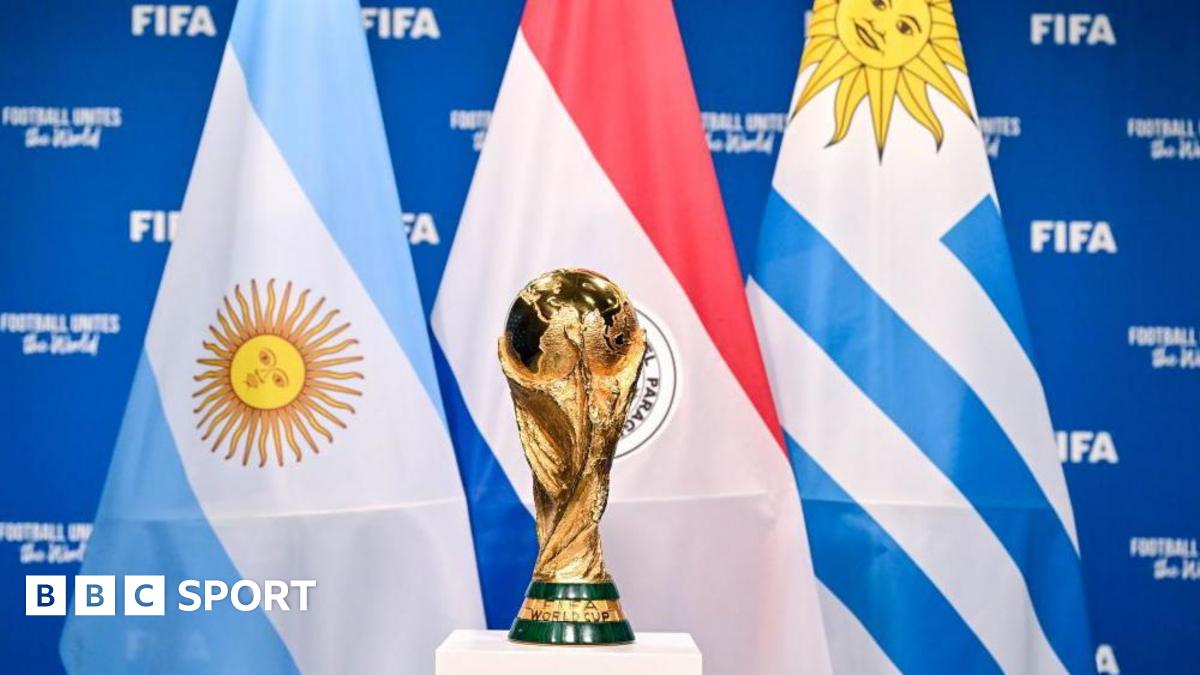South America Pushes for a Mammoth 64-Team 2030 World Cup
The race to host the 2030 FIFA World Cup is heating up, and South America has thrown its hat into the ring with a bold proposal: a tournament featuring a staggering 64 teams. This ambitious plan, backed by a joint bid from Uruguay, Argentina, Chile, and Paraguay, aims to revolutionize the world's most prestigious football competition. But is this expansion realistic, and what are the potential implications?
A Continent United: The 2030 Bid's Bold Vision
The centenary of the first FIFA World Cup, held in Uruguay in 1930, provides a powerful narrative for this ambitious bid. The four nations involved – Uruguay, Argentina, Chile, and Paraguay – are uniting to celebrate this historical milestone with a World Cup unlike any other. The core of their proposal centers around expanding the tournament to 64 teams, a significant leap from the current 32. This would make it the largest World Cup in history, dramatically increasing the global reach and participation.
The Pros and Cons of a 64-Team World Cup
Expanding the World Cup to 64 teams presents a compelling vision, but also raises significant logistical challenges.
Arguments for Expansion:
- Increased Global Participation: A larger tournament would offer more nations the opportunity to compete on the world stage, potentially boosting the popularity of football in underrepresented regions.
- Greater Inclusivity: Expansion could foster a more inclusive and diverse World Cup, reflecting the global nature of the sport.
- Enhanced Commercial Appeal: A larger tournament would naturally attract a broader audience and generate increased revenue for FIFA.
Arguments Against Expansion:
- Logistical Nightmares: Organizing a 64-team tournament would require extensive planning and infrastructure development, potentially stretching resources thin. The sheer number of matches would necessitate a longer tournament duration, potentially impacting player fitness and club schedules.
- Diluted Quality of Play: Critics argue that expanding the tournament could lead to a reduction in the overall quality of matches, as weaker teams are included.
- Financial Concerns: While increased revenue is anticipated, the cost of hosting such a large-scale event could be prohibitive, potentially requiring substantial investment from both the host nations and FIFA.
The Road Ahead: Challenges and Opportunities
The South American bid faces stiff competition from other potential hosts, including a joint bid from Spain, Portugal, and possibly Ukraine. Securing the rights to host the 2030 World Cup will depend on a number of factors, including FIFA's assessment of the bids, infrastructural capabilities, and the overall financial viability of each proposal.
Regardless of the outcome, the South American proposal signifies a bold vision for the future of the World Cup. The debate surrounding a 64-team tournament highlights the ongoing evolution of this iconic global sporting event, prompting important conversations about accessibility, inclusivity, and the balance between spectacle and sporting excellence.
Keywords: 2030 World Cup, FIFA World Cup, South America, 64-team World Cup, Uruguay, Argentina, Chile, Paraguay, football, soccer, bid, expansion, logistical challenges, global participation, inclusivity, commercial appeal, FIFA
Call to Action: What are your thoughts on a 64-team World Cup? Share your opinions in the comments below! Let's discuss the future of football's biggest tournament.

